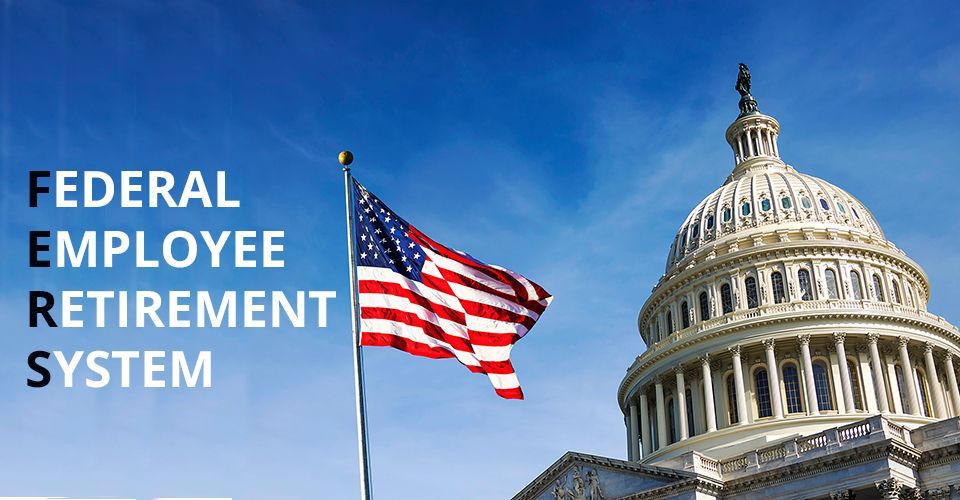Save Now, Retire Well: Federal Employee Tax-Deferred Benefits

Federal jobs come with many perks, and a strong retirement plan is a big one. For most federal employees hired after 1983, the Federal Employees Retirement System (FERS) offers a powerful way to save for the future. Here's how it benefits you:
Schedule Now
- Tax-Deferred Growth: The cornerstone of FERS is the Thrift Savings Plan (TSP). Similar to a 401(k), your contributions are deducted from your paycheck before taxes are applied. This lowers your taxable income now and lets your money grow tax-deferred until retirement.
- Government Match: A big bonus! The government contributes a percentage to your TSP based on your contributions, essentially giving you free money for retirement.
- Catch-Up Contributions: Reaching retirement later? The IRS allows "catch-up" contributions for those aged 50 and over, letting you save more each year.
- Traditional or Roth: The TSP offers both traditional and Roth options. Traditional lowers your taxable income now, with taxes paid on withdrawals. Roth contributions are made with after-tax dollars, but qualified withdrawals in retirement are tax-free.
Remember, contribution limits apply, so research the current limits
to plan your savings strategy. For a secure and prosperous retirement, FERS's tax-deferred options are a valuable tool. Since there is a lot of information to review and consider before you retire, it’s recommended to consult with a retirement coach for personalized guidance. To get connected with one of Federal Retirement Experts’ retirement coaches, visit our connection page and complete the form to schedule a 30-minute consultation. Our expert coaches can answer your FERS and TSP questions, explain how federal benefits work in retirement, and calculate a projected retirement income. If you're 50 or older, you’ll also receive a complimentary pre-retirement analysis. This is a free tool to help you to better plan for retirement.
More Featured Articles

Retirement planning isn’t just about numbers-it’s about peace of mind, security, and making the most of the benefits you’ve worked hard to earn as a federal employee. Yet, with the ever-changing landscape of federal benefits, tax laws, and investment options, even the most diligent savers can feel overwhelmed. That’s where the “5 Keys to Retirement” guide comes in-a resource designed specifically for federal employees who want to take control of their future and retire with confidence. The Power of a Comprehensive Approach What sets the “5 Keys to Retirement” guide apart is its holistic, actionable approach. Instead of focusing on just one aspect of retirement, this guide empowers you to address the five foundational pillars of a secure retirement: income planning, investing, taxes, estate and legacy planning, and healthcare. By breaking down each area into manageable steps, the guide helps you see how these elements work together to create a robust and resilient retirement strategy. Many federal employees underestimate the complexity of coordinating their FERS or CSRS pension, Social Security, Thrift Savings Plan (TSP), and personal savings. The guide helps you understand how to maximize each benefit, avoid common pitfalls, and identify opportunities that might otherwise go unnoticed. Whether you’re nearing retirement or just starting to plan, having a clear, comprehensive roadmap can make all the difference in achieving your goals. Five Reasons to Download the Guide The “5 Keys to Retirement” guide isn’t just another generic checklist-it’s a tailored resource crafted with the unique needs of federal employees in mind. Here’s what makes it so valuable: Clarity and Confidence : The guide demystifies complex retirement topics, so you can make informed decisions without second-guessing. Actionable Steps: Each section offers practical guidance you can implement right away, helping you move from uncertainty to action. F uture-Proofing : By addressing everything from tax strategies to healthcare and estate planning, you’ll be better prepared for life’s unexpected twists. Expert Insight : Developed by professionals who understand federal benefits inside and out, the guide ensures you’re not leaving money-or security-on the table. Peace of Mind : With a comprehensive plan, you can focus on enjoying your retirement instead of worrying about what you might have missed. Take the Next Step Toward a Secure Retirement Don’t let uncertainty or lack of information stand between you and the retirement you deserve. Download the “5 Keys to Retirement” guide today and take the first step toward building a future that’s as rewarding as your career. And if you're 55 or older, meet age & service requirements, or elected to take the VERA, then you can take advantage of our added bonus. We invite you to schedule a free consultation with one of our federal retirement experts. We'll answer your federal retirement questions and help you create a personalized retirement plan that meets your unique needs - at no cost to you. Don’t wait-your secure retirement starts with a single click!

As federal employees approach retirement, understanding the intricacies of the Thrift Savings Plan (TSP) becomes crucial. With recent updates and evolving market conditions, it's essential to stay informed and effectively strategize. As Federal Retirement Experts (FRE), we’ll explore the latest TSP contribution limits, investment options, and retirement planning strategies to help you maximize your federal retirement benefits.

So, you've dedicated years of service to the federal government. Now, the prospect of retirement shimmers on the horizon, promising a life of leisure, travel, and pursuing passions long set aside. But before you say goodbye to the 9-to-5, there's a crucial decision to make: when exactly should you retire? While any day that marks your escape from the daily grind might seem like a good one, strategically choosing your retirement date can significantly impact your federal employee benefits, potentially adding thousands to your retirement income. This isn't just about picking a date that's convenient; it's about understanding the complex interplay of federal retirement rules and maximizing your hard-earned benefits.

Federal employees, especially those nearing retirement age, should be aware of potential changes that could impact their retirement benefits. While details are still emerging, a new Department of Government Efficiency (DOGE) is being discussed, which could have implications for federal operations and retirement benefits. According to recent reports, this new department aims to increase transparency and efficiency in government operations. However, the full scope and implications of this initiative remain unclear. As with any significant change in government structure, there may be unforeseen consequences that could affect various aspects of federal employment, including the Federal Employee Retirement System (FERS) benefits.

The Federal Employees Retirement System (FERS) Supplement, also known as the Special Retirement Supplement (SRS), is a valuable benefit for eligible federal employees who retire before age 62. However, many retirees are surprised to learn that this supplement is subject to an earnings test, which can reduce or eliminate the benefit based on post-retirement income. Understanding how this earnings test works is crucial for federal retirees planning their financial future.

Federal workers are bracing for a significant increase in their health insurance costs come 2025. The Office of Personnel Management (OPM) has announced that Federal Employees Health Benefits (FEHB) program premiums will rise by an average of 13.5% next year. This marks the largest increase in almost two decades and comes on the heels of already substantial hikes in recent years.

Social Security benefits play a crucial role in the financial security of millions of Americans during retirement. However, navigating the complex system of rules and regulations surrounding Social Security can be challenging. This guide aims to help you understand the key aspects of Social Security and provide strategies to maximize your benefits.


